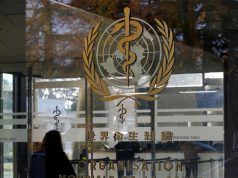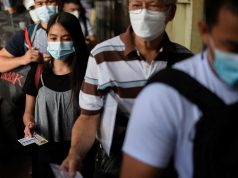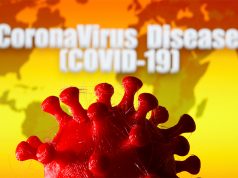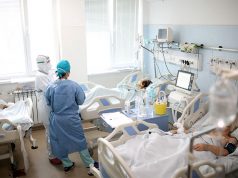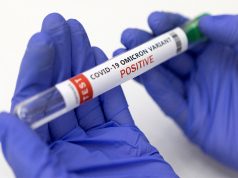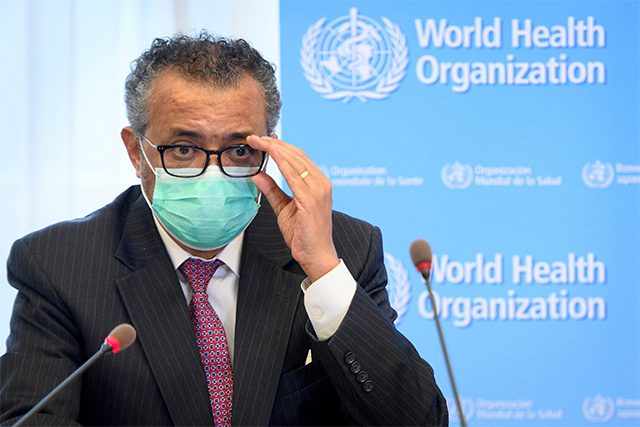
GENEVA – The heavily mutated Omicron coronavirus variant is likely to spread internationally and poses a very high risk of infection surges that could have “severe consequences” in some places, the World Health Organization (WHO) said on Monday.
No Omicron-linked deaths had yet been reported, though
further research was needed to assess its potential to resist
vaccines and immunity induced by previous infections, it added.
Anticipating increased case numbers as the variant, first
reported last week, spreads, the U.N. agency urged its 194
member states to accelerate vaccination of high-priority groups.
“Omicron has an unprecedented number of spike mutations,
some of which are concerning for their potential impact on the
trajectory of the pandemic,” the WHO said.
“The overall global risk …is assessed as very high.”
Tedros Adhanom Ghebreyesus, WHO director-general, said
Omicron’s emergence showed how “perilous and precarious” the
situation was.
“Omicron demonstrates just why the world needs a new accord
on pandemics,” he told the start of an assembly of health
ministers expected to launch negotiations on such an agreement.
“Our current system disincentivizes countries from alerting
others to threats that will inevitably land on their shores.”
The new global deal, expected by May 2024, would cover issues such as sharing of data and genome sequences of emerging
viruses, and of any potential vaccines derived from research.
Scientist Richard Hatchett, CEO of the Coalition for Epidemic Preparedness Innovations (CEPI), a foundation that funds vaccine development, said Omicron’s emergence had fulfilled predictions that transmission of the virus in areas with low vaccination rates would speed its evolution.
“The inequity that has characterized the global response has
now come home to roost,” he told the talks, noting that Botswana
and South Africa had fully vaccinated less than a quarter of
their populations.
‘Overwhelming demands’
Omicron was first reported on Nov. 24 from South Africa,
where infections have risen steeply.
It has since spread to more than a dozen countries, many of
which have imposed travel restrictions to try to seal themselves
off. Japan on Monday joined Israel in saying it would close its
borders completely to foreigners.
The WHO reiterated that, pending further advice, countries
should use a “risk-based approach to adjust international travel
measures”, while acknowledging that a rise in coronavirus cases
might lead to higher morbidity and mortality rates.
“The impact on vulnerable populations would be substantial,
particularly in countries with low vaccination coverage,” it
added.
In vaccinated persons, meanwhile, “COVID-19 cases and
infections are expected…albeit in a small and predictable
proportion”.
Overall, there were “considerable uncertainties in the
magnitude of immune escape potential of Omicron”, and more data
was expected in coming weeks.-Reporting by Stephanie Nebehay; Editing by John Stonestreet




